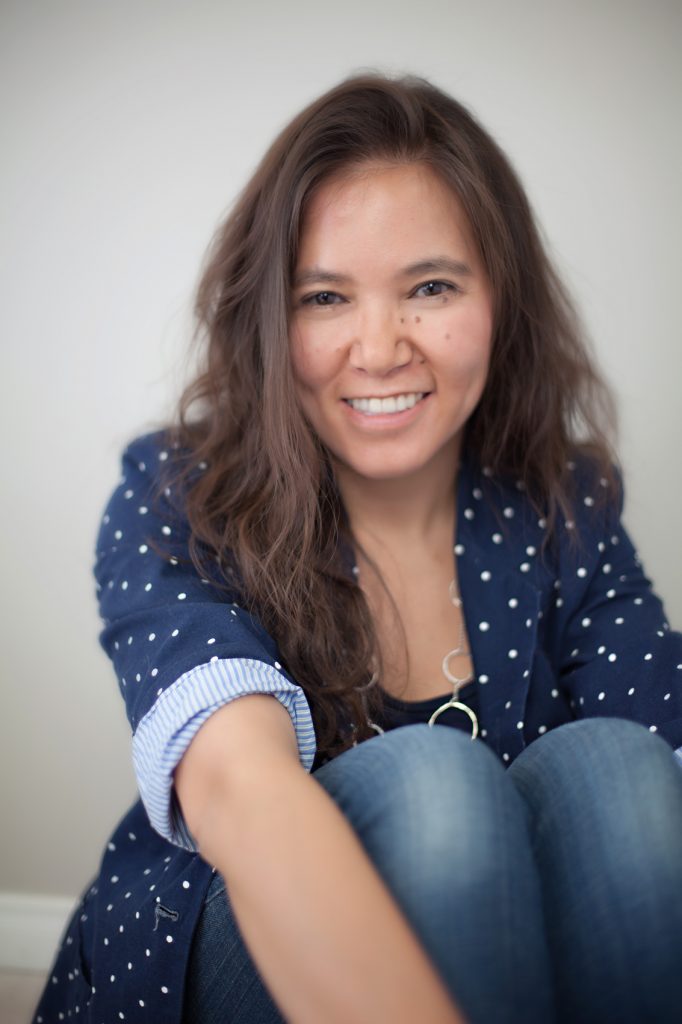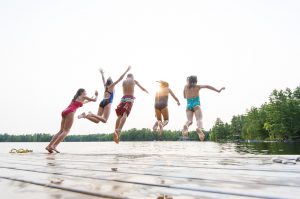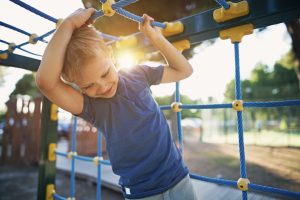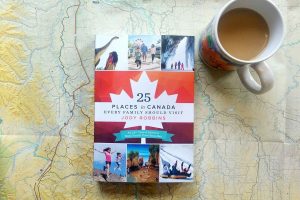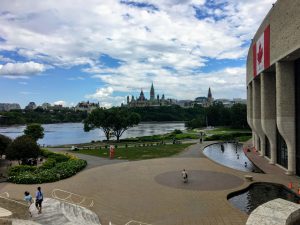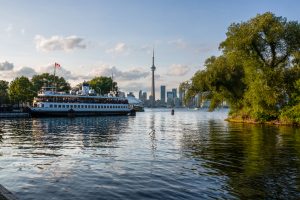How An Octopus Taught My Family An Important Lesson
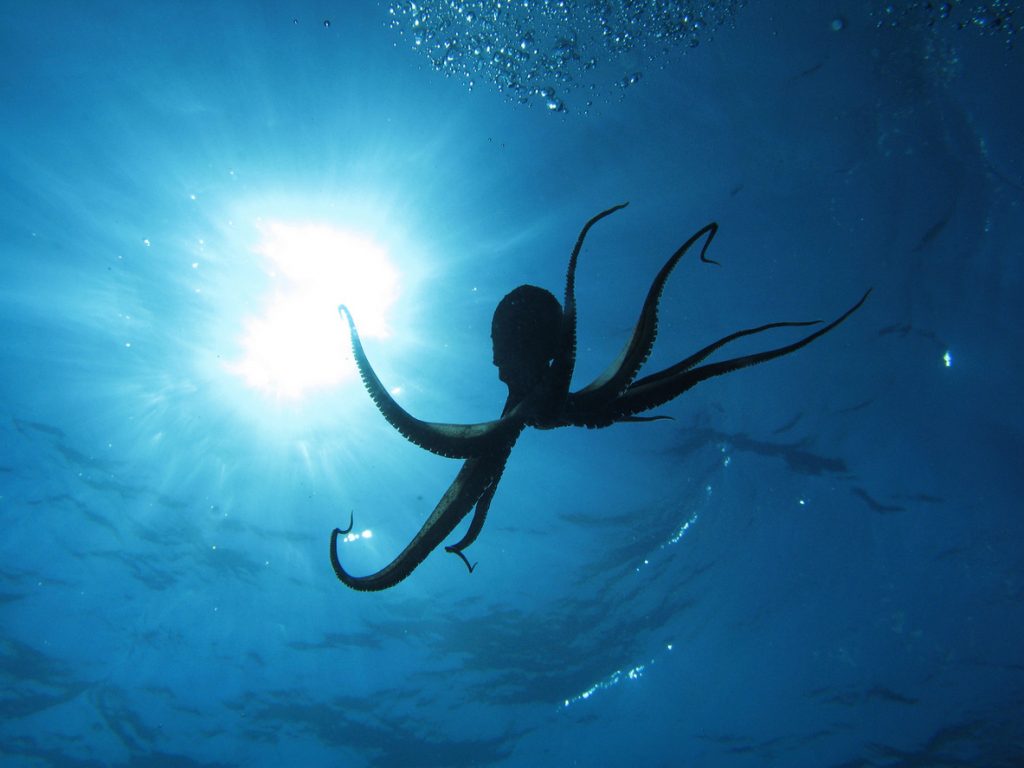
This holiday season, which we can all agree came at the end of a knock-em-down year of parenting, took the last of the magic I could muster. It’s usually such a relief to slide into the lazy days of low expectation after Christmas gets packed up. But the reality of juggling more virtual learning with work-from-home responsibilities, while also worrying about a relentless virus has defeated me. Instead of relaxing, I fought low-grade feelings of dread and listlessly watched our household move through an endless loop of day and night.
I wasn’t expecting a film about an octopus to come and rewarm my heart, but that’s exactly what happened.
I was up early on that grey, rainy morning with big plans to tackle some of the long-neglected projects on a list that’s just for me: a rare jewel for someone raising four children during a pandemic. When I came downstairs to refresh my coffee mug, I found our youngest daughter sitting cross-legged and pajama-clad on the couch with her new Guinness Book of World Records open across her lap. She devours facts and is moved by them in the same way others can be when losing themselves in stories about imaginary people and places.
She caught sight of me and called out as I moved past her into the kitchen, “Mummy, can you believe a man was able to build a prosthetic arm from LEGO?” I came back and leaned in as she pointed at the photo and regaled me with the details about how the fingers moved. As I listened to her, a spark fired in the part of my brain where I store parenting tidbits to be used when the timing feels right. I took in the amazement on her face and before I could stop myself, I was ditching my plan for much-needed solitude.
“Hey, do you want to come and watch a documentary with me?”
She eyed me warily at first; she was enjoying her downtime, too. The rest of the house was still slumbering, and she knew it was a day without rules. “Are you going to try and sneak in some life lessons?” she asked, before reminding me that I had been doing a lot of that since our lives changed drastically in March.
I assured her it was probably nothing more than an hour of beautiful cinematography and interesting facts about the ocean. In truth, all I could remember is that it was about an octopus and had been recommended as an emotionally-poignant film. But something about what I read made me think it was important for us to watch.
Since becoming parents, my husband and I have done our best to bring our kids close to nature with annual road trips through national parks and camping weekends every summer from the time they were babies. But 2020 brought glaring lessons about our disconnection to the natural world and the people and creatures who inhabit it. We still have so much to learn, and a lesson on this particular subject is always a good one to have.
My Octopus Teacher starts the way I expected it to, with an exploration of the frigid ocean waters and beautiful kelp forests off the Western Cape of South Africa. My daughter sat beside me with her blanket pulled up over her face, “Oceans scare me!” she mumbled from underneath her cover, as the narrator’s voice described how ferocious the waves can be. I convinced her to stay the course and once the flowing and elegant star of the film was introduced, we were both hooked. “I don’t really like fish,” she told me, even though neither of us could take our eyes off her.
The narrator, filmmaker Craig Foster, is also a character in the story. While we follow his exploration of the ocean floor, he shares that he began deep diving as a way to heal from the burnout he was experiencing professionally and personally. Finding and then befriending an octopus hadn’t been part of his plan, yet he welcomed the chance to learn from her over the 300-plus days he tracked her. I related to his burnout, while my daughter seemed to connect to his growing friendship with the mysterious creature. It doesn’t matter who you relate to most when you watch their story; you end up rooting for them both.
When an encounter with a shark results in a dismembered arm and a worrisome recovery and regrowth, we both empathized with Foster as he fought the urge to intervene and protect her. I wondered if my daughter was thinking about the resiliency of the man with the LEGO arm. We paused our viewing once, so I could explain what it means that two-thirds of an octopus’ brain activity is located within its arms. Because an octopus relies on touch to engage with the environment, much of its learning happens through the suckers on its arms. The filmmakers teach you this first, so that when you watch the octopus physically connect with Foster, first by grabbing his hand and then by appearing to hug him, you can understand how miraculous their relationship is.
By the time we got to the climax of the documentary (which I won’t spoil for all of you), we were both crying hard.
My tears fell for the characters in the film, but also for the state of the world right now.
While they’ve shown tremendous resiliency, I worry about the long-term impact of the past year on our children and whether their faith in our ability to get them through it is faltering. I wonder (constantly) if I’m doing enough to keep the magic of childhood alive, when all my energy is focussed on keeping them safe.
I reached across the couch to grab hold of her and she said “I don’t think I can handle a hug yet, Mummy. It will make me cry even more.” I settled for holding her hand and waited for her to catch her breath before I asked what she was thinking.
“It’s hard to explain because I know the octopus wasn’t a person. But they loved each other and that hurts my heart,” she whispered between sobs.
And with that simple explanation, I knew a life lesson had been snuck in; the one we all need to remember as we step into the new year. This film reminded us that we are connected to each other and to this great, wild world.
There’s still so much beauty to believe in, and so much hope to hold onto. Life is fragile and the only anecdote is to love each other anyway.
In the words of the filmmaker, as he describes his own lesson learned, “You realize that everyone is very important…how vulnerable all our lives on this planet are. What she taught me to feel is that you are part of this place, not just a visitor.”
